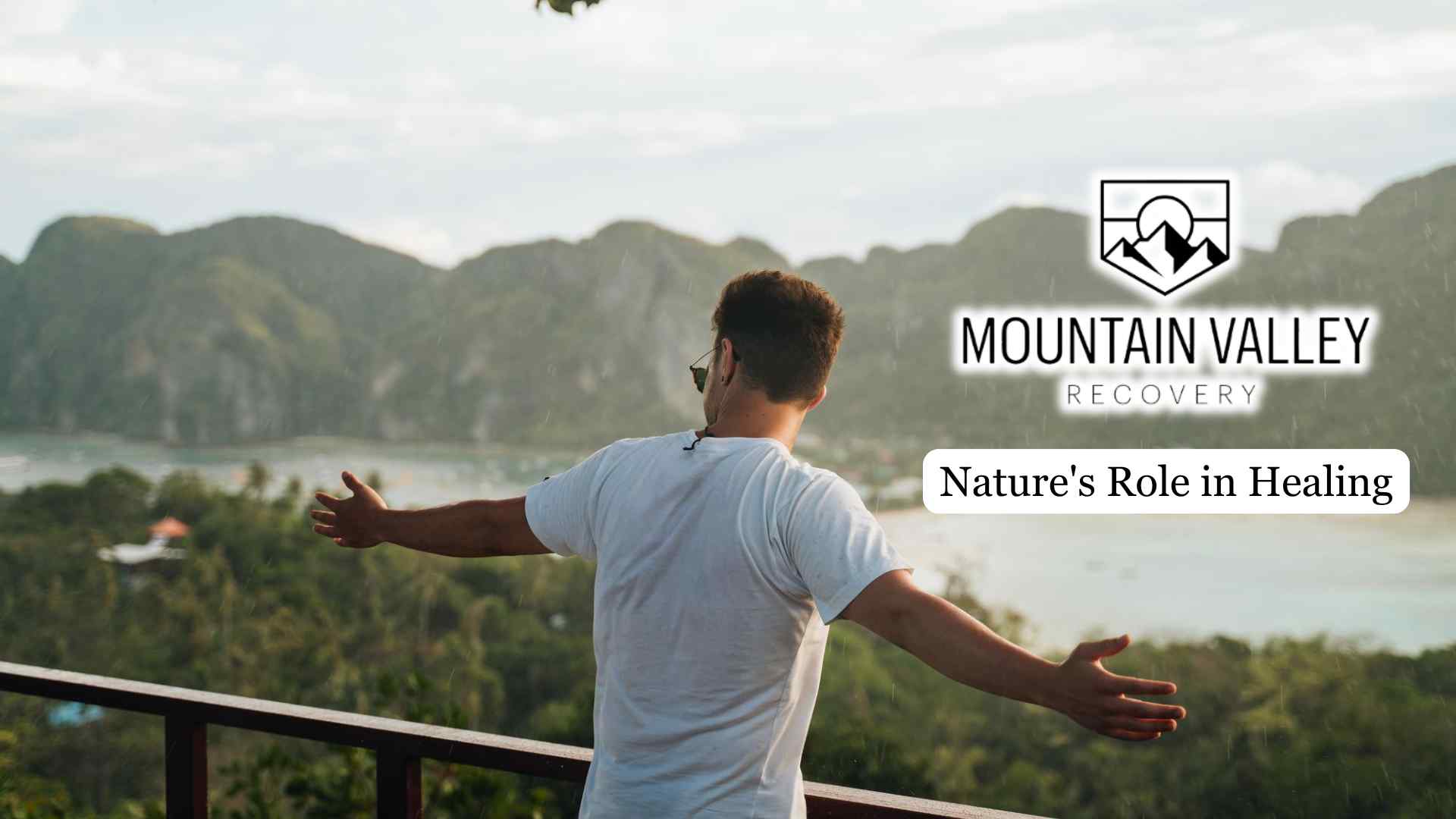As people navigate the challenges of overcoming substance abuse, they often face emotional turmoil, stress, and a feeling of being disconnected from themselves and their environment. Nature provides a healing refuge that can greatly improve the recovery journey.
Here we’ll examine the diverse ways in which nature supports addiction recovery and how incorporating the natural world into treatment programs can lead to life-changing results.
Stress Reduction
When you spend time in green spaces, your cortisol levels significantly decrease, helping alleviate the stress that often triggers cravings and hinders progress.
Nature’s calming influence also lowers anxiety, promoting a more relaxed state of mind essential for maintaining sobriety. By engaging in activities like forest bathing, you’ll experience a profound sense of tranquility that supports your mental well-being and strengthens your resilience against relapse.
Moreover, nature’s ability to enhance emotional well-being can’t be understated. As you immerse yourself in natural surroundings, symptoms of depression diminish, empowering you to cope better with the challenges of addiction recovery.
This improved emotional state not only boosts your overall health but also fosters a more positive outlook, increasing your chances of long-term success.
If you or someone you care about is looking for help in recovering from addiction, we encourage you to learn more about vocational programs at Mountain Valley Recovery and find out how nature can be a powerful partner in your healing journey.
Improved Mood and Motivation
Exposure to green spaces triggers the release of endorphins, nature’s feel-good chemicals, which can help you overcome the emotional challenges often associated with addiction.
When you engage in outdoor activities, you’ll experience a significant boost in positive emotions while reducing feelings of anxiety and depression.
Nature therapy also helps minimize rumination, allowing you to break free from negative thought patterns and focus on your recovery goals with renewed motivation.
As you spend more time outdoors, you’ll likely notice an increase in self-esteem and a more optimistic outlook on life. These emotional benefits are crucial for maintaining the motivation needed to pursue and sustain your recovery journey.

Physical Activity in Nature
Engaging in activities like hiking or biking in green spaces boosts endorphin levels, improving your mood and emotional well-being.
Studies show that outdoor exercise reduces anxiety and depression symptoms, contributing to a more positive recovery experience. Participating in nature-based physical activities not only improves your fitness but also helps establish a consistent health routine, which is crucial for maintaining sobriety.
Natural environments encourage prolonged engagement in physical activity, leading to improved overall health and reduced cravings for substances. Regular movement in nature, such as walking in parks or forests, fosters mindfulness and enhances emotional regulation, further supporting your recovery efforts.
Read more about the beneficial impact of equine therapy on men in addiction recovery.
Mindfulness and Grounding Techniques
By engaging in practices like forest bathing, you’ll significantly reduce stress and anxiety levels, enhancing your emotional well-being during recovery.
Grounding techniques, such as walking barefoot on grass, can lower cortisol levels and promote relaxation, aiding in emotional regulation. Mindfully observing natural elements, like trees and water, fosters a sense of presence and reduces rumination, which is often linked to depression and anxiety.
Spending time in nature while practicing mindfulness enhances self-awareness and promotes healthier emotional responses, crucial for those in recovery. Regularly incorporating mindfulness and grounding exercises in natural environments strengthens coping mechanisms, providing you with tools to navigate recovery challenges effectively.
These practices, when combined with the therapeutic benefits of nature, create a powerful support system for your recovery process.
Click here to read our guide on holistic approaches in addiction treatment and learn how alternative recovery practices can improve sobriety efforts.
Ecotherapy Practices
Ecotherapy, also known as nature therapy, harnesses the healing power of the great outdoors to support your mental health and well-being. By incorporating activities like guided walks, gardening, and mindfulness exercises into your recovery plan, you’ll cultivate a deeper connection with the environment and enhance your self-awareness.
Engaging in ecotherapy can work wonders for stress reduction, lowering cortisol levels and boosting your mood. As you immerse yourself in nature’s embrace, you’ll find your anxiety melting away, replaced by a sense of calm and resilience.
Regular participation in nature-based therapies can lead to increased feelings of well-being, empowering you to navigate the challenges of addiction recovery with greater ease.
Final Thoughts from Mountain Valley Recovery
For men facing the challenges of recovery, connecting with the natural world can improve emotional well-being, reduce stress, and create meaningful relationships with others. At Mountain Valley Recovery, we understand the value of incorporating nature into our treatment programs through recreational therapy. By participating in outdoor activities and embracing the therapeutic benefits of nature, we empower individuals to develop resilience and discover renewed purpose in their lives.





